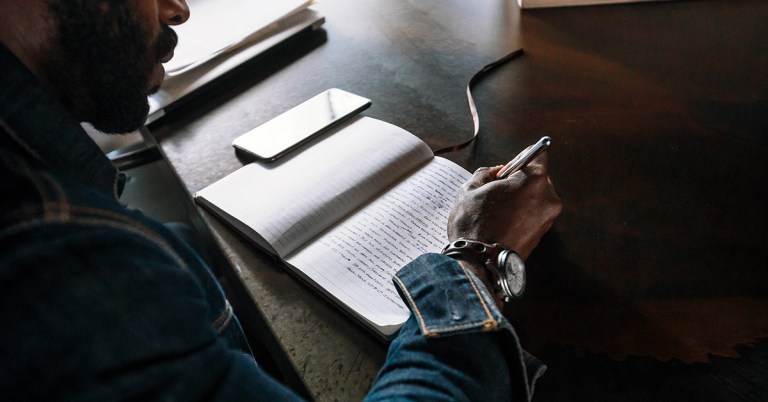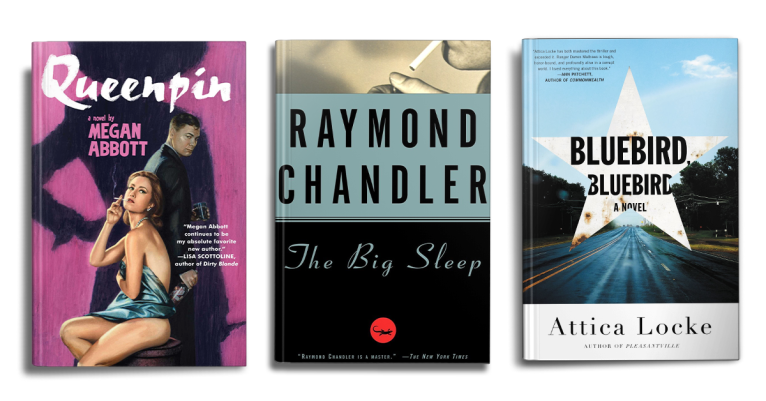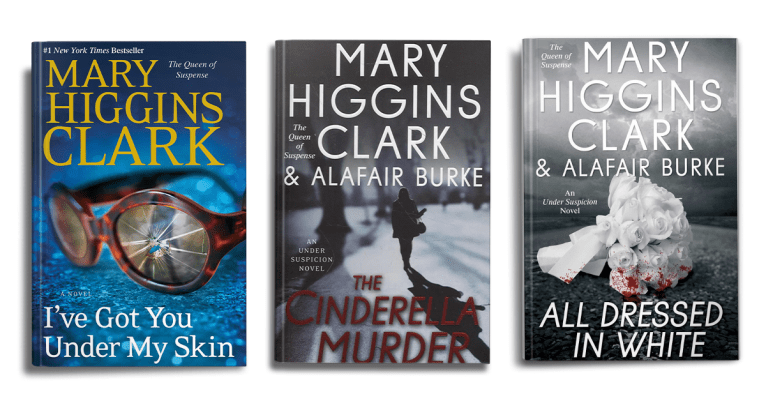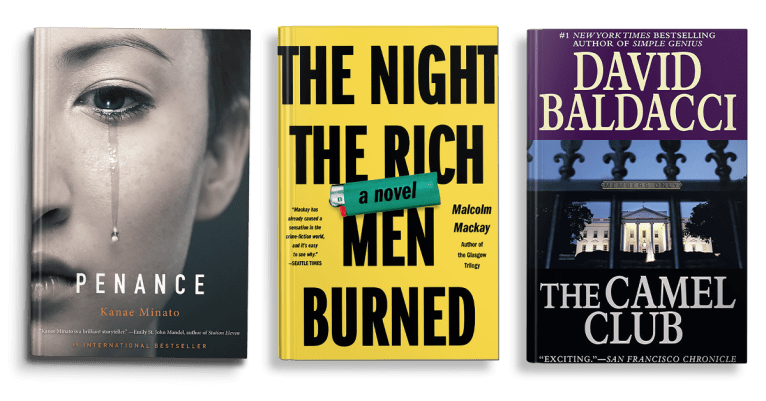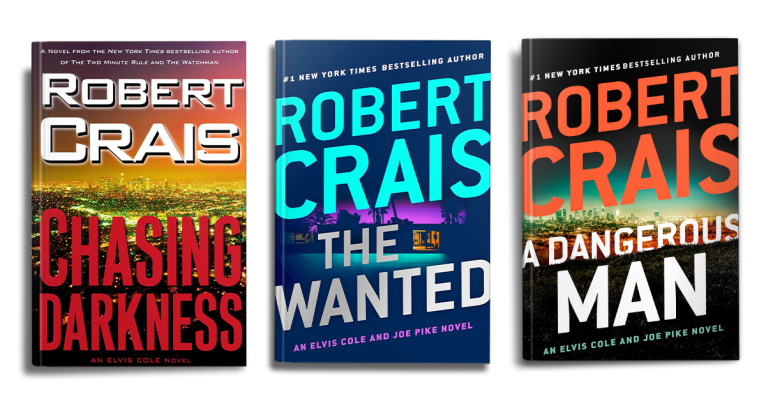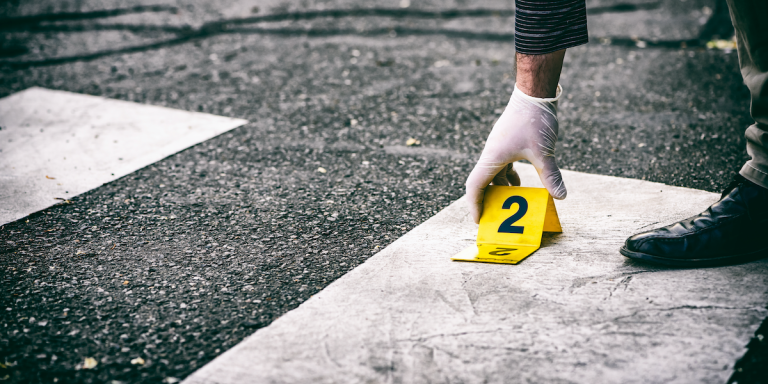Read The Excerpt: Please See Us By Caitlin Mullen

“Copyright © 2020 by Caitlin Mullen. From the recently published PLEASE SEE US by Caitlin Mullen, published by Gallery Books, a Division of Simon & Schuster, Inc. Printed by permission.”
Prologue
BY THE SECOND WEEK IN June, there are two dead women laid out like tallies in the stretch of marsh just behind the Sunset Motel. They are so close to each other that their fingers nearly touch. The women can see everything with perfect clarity now, the man’s entire design available to them as though they had thought of it themselves: by the end of eight weeks’ time there will be five more women. He plans to use the city’s symbols against it. Seven women, seven warnings. Not so lucky after all.
The motel sits on the western border of Atlantic City, where stretches of salt marsh buffer the space between land and ocean. Casinos line the shores on the eastern edge of town, along the boardwalk, and to the north, where pleasure boats slip in and out of the marina or dock long enough for a bottle of wine, a bit of sun, a swim. At night the skyline is gapped, like a child’s smile: half of the casinos have shut down and their lights are turned out. The empty buildings hulk against the shoreline, mammoth and spectral as shipwrecked cruise liners.
In death, the women are still dressed to walk the streets. To attract clients with a slice of leg, cleavage. To mime desire with a cant of the hips, a toss of their hair. Dressed to be undressed. Their jewelry glints in the sun: gold hoop earrings and the delicate chains of ankle bracelets. Charms in the shape of four-leaf clovers, a pair of cherries, a cat’s head. A stack of cheap metal bangles, the gilt coming off in tiny flakes. There is longing in the way their hands seem to reach toward one another, the aching almost of it. Bruises bloom on the skin of their arms, delicate blues and greens that could have been painted with watercolor. Except for their necks, which are marked with purple rings. The water seething in and out with the tide means they won’t be preserved for long. Already dense, iridescent clumps of greenhead flies tickle along their limbs, their cheeks, their scalps; the flies’ thick, segmented wings like stained glass.
Each day brings a new hope that someone will find them. Planes fly banners over the beach, advertising Corona. The pilots loop back over the marsh but never look down. Other days an employee from the motel rattles a bag of recycling to the dumpster. Some nights a couple stops in the motel’s parking lot to fuck in the back seat of a rusted-out Ford Explorer. The car rocks on its frame for a little while, and after it goes still the man ambles out to light a joint. Sometimes the woman squats on the edge of the marsh to piss behind the cover of the reeds. The women call to her, the shush of the wind through the grass like a whisper. Look, they try to say. Look. Look. Please see.
Cars and buses thrum past on the Black Horse Pike, trucks delivering cuts of filet mignon and rib eye to the casino steak houses, or vans of fresh laundry for the hotels: sheets and pillowcases that have been boiled clean, napkins and tablecloths stiff with starch. At one point or another the women in the marsh have wished for that kind of a cleansing, a way to scald their secrets away, their pasts swirled down the drain.
The man has turned their heads so they both look in the same direction: east, toward the lights of Atlantic City. They have been placed there to watch, to warn. Their eyes are open. They wait.
CLARA (Chapter 1)
IT WAS THE HOTTEST DAY of the summer so far when the missing girl’s uncle came to see me. I sat in one of our metal folding chairs, shifting every now and then to unpeel the flesh of my thighs from the seat. Des said we didn’t have the money to run the window unit in the shop, so I always felt feverish and sticky. Sweat sluiced down my spine and my hair was heavy and damp on the back of my neck. I had just bought a fan the week before, one of the old metal kinds with a steel cage over the blades, from the pawnshop on Pacific Avenue. I’d made Zeg, the owner of the shop, test it so I could be sure it still worked. He grunted like he was put out, but together we pushed an old TV away from an outlet, plugged the fan in, and watched it rattle to life. I touched my fingers to the cage, their metallic, rusty smell practically in my mouth, like dirty nickels. There was still enough space to slip something small between the bars toward the blades—the end of a pencil, a fingertip—and it beckoned, a dare.
“Christ, don’t do that!” Zeg said. “You know how sharp that metal is? That thing will slice your finger off.”
“Okay, okay, don’t get your panties in a bunch,” I said. But I knew what I was up to. I did stupid things in front of him because it felt a little good to hear him scold me. A little bit like love. The fan didn’t do much for the heat, but every now and then the breeze shifted and a cool wind blew in off the ocean. Sometimes it was enough to make the sweat on my back go cold, and a shiver would work its way through my body. But relief, when it came, was brief.
It was the third week in June, and already I had the sense that that summer was going to be different from any other summer I had known. The weather had been warm for weeks, and still the tourists hadn’t come. The boardwalk should have been crowded, crackling with carnival energy: people wearing heaps of purple and gold Mardi Gras beads from the Showboat, drinking hard lemonades from colorful plastic cups, groups of bachelorette parties, drunk girls screeching and teetering in their heels, their Mylar sashes glinting in the sun. But two more casinos had closed over the winter. The trams that rumbled by never had more than a passenger or two on board, and the rolling chair men pushed their empty wicker carriages up and down the boardwalk, the wheels thumping over the uneven planks. By noon each day the chocolate fudge samples on the trays in front of Fralinger’s Candy Shop had melted into one sticky, indistinct mass. Atlantic City felt like it was waiting for something to happen or for something to be revealed, waiting for an answer or sign. Like in my books, Mercury in retrograde, blood on the moon. I hadn’t had a single client all day when I saw the man standing outside the window, squinting through the chipped gold lettering on the hazy glass.
The man backed away and approached the chalkboard sign in front of the door. Palm Reading Special $5. He shook his head, shoved his hands into his pockets, took a few steps, and turned around again so that he stood behind the beaded curtain. I could hear his breath, the slight whistle of it through his front teeth. I didn’t say anything. Des would have told me to greet him. Would have told me to hike my skirt up a little bit, to show some skin. Entice them, Ava. Times are tough. We’ve got to use everything we’ve got. But Des was waitressing at the club, so I slouched deeper into my chair. Something about him made me want to watch, to wait.
He reached, parted the curtain, and for a moment his hand seemed disembodied, nothing but grasping fingers and raised veins, blue and meandering across the back of his palm. Then the beads clattered and the rest of his body joined his hand inside the shop. He was a short, older man in khakis and boat shoes. Lips pressed into a grimace, forehead glistening with sweat. He cleared his throat once, then again, more loudly, as though he were trying to convince himself of something.
“Hello,” I said. “How can I help you?”
“I’m uh . . . well. I’m here for a reading?”
“Why don’t you have a seat?” I smiled. “What brings you here today?”
“Well. I’ve never done this before. That probably goes without saying. I, uh, no offense.” He reached into his pocket for a handkerchief, staunched a bead at his temple.
“That’s okay. Most people who come here haven’t done this before.”
“Oh, well. Okay. Okay, I see. Um. You’re really the psychic?”
“I am.”
“Excuse me, but you’re so young.”
“An old soul.” I always tried to smile in a certain way when I said this. Magnanimously. Patiently. Like I believed it. “The gift runs in my family. I come from a very long line of seers. Please sit.”
His fingers left a smeared sweat mark on the chair as he pulled it out, and he lowered himself gingerly, as though sitting down signified a commitment he wasn’t sure he wanted to make. He stared into the clear plastic sphere that passed for our crystal ball—something Des had bought out of a catalogue a decade ago.
From the other side of the table I watched the way it distorted his face, made his eyes huge and extraterrestrial, his mouth puckered and small. I thought of the freak show at the end of the boardwalk, of the alien corpse they claimed to have, embalmed, and yours to look at for only $7. How I had saved up to see it when I was younger, but when I peered down into its casket it was clear that it was only a doll.
“So, please tell me more about what you’re hoping to find out today.” I noticed that his nails were clean and neatly trimmed. He wore a gold wedding band on his left hand. His hair was mostly gray and receding, but he looked like he took care of himself. Like someone who swam laps at the gym and had fruit for dessert and took walks around the neighborhood after dinner. He didn’t look like someone who spent his weekends in Atlantic City, gorging himself at bottomless buffets and snapping his fingers at cocktail waitresses to bring drinks to the poker table. It was what I wanted, too—to seem like a person who didn’t fit in here.
“It’s my niece,” he said. “She’s missing. She’s my sister’s girl. I helped raise her from the time she was ten or so. My sister, you see, had some . . . issues. So did the girl’s father. Sherri and I—Sherri is my wife—became her legal guardians. There were some, ah, difficulties at first. She had never had any discipline, any order in her life, but things got better. She did well in school, became the star of the track team.” He paused and rubbed another bead of sweat from his temple. “She was supposed to graduate from high school this month, but she . . . she ran away. She left a note, and then there was one charge on her credit card from a hotel here in Atlantic City, two weeks ago. But other than that, nothing. I have no clue where she is. I know you might not be able to help me, but because she was eighteen the only thing the police can do is file a missing person’s report. I just thought at this point anything is worth a try.”
I realized that I had seen her before, the missing girl. Or at least I assumed it was the same girl—not in person, but on the posters that this uncle, I supposed, had put up all over town. Stapled to telephone poles, hung at entrances of the bus terminals in the casinos. She was thin, dark-haired, with a rhinestone stud in her nose, a small gap between her teeth—same as her uncle’s. The picture looked like it might have been taken at a party or gathering. There was a glow underneath her face, like she was leaning over a bonfire or the lit candles of a birthday cake. It had caught my eye because whoever was looking for this girl—I still couldn’t remember her name—was offering a $1,000 reward for any information that proved useful. I had daydreamed about what I could do with $1,000. How far I could travel with that kind of money. How free I would feel. I tried to picture the poster again. J. The girl’s name began with a J. Jessica? Jamie? Jane?
“So, um, anyway . . .” He looked around the room again, as though he might still find an excuse to leave. “I don’t know how this works. But if there’s anything you can tell me, anything about where she might be, that would be appreciated.”
This kind of thing had happened a few times before—a client looking for another person who had slipped out of their life. Usually it was a boyfriend or girlfriend, a spouse who had left in the middle of the night. But this was different. No one had ever asked for my help finding a missing girl. Other times, there was something that could keep me from feeling too sorry for those kinds of clients—they were harsh and demanding. They were brusque or otherwise they were weepy, had a quality about them that made me understand why a person would want to pry themselves from their grasp. But this man in front of me, with his apologetic smile, his nervousness, and the sadness that hung over him like an extra layer of clothing—I felt sorry for this man.
“Do you have anything of hers with you right now? It isn’t crucial, but it may be helpful.” I was making things up, of course, and it seemed like some sort of a prop might make whatever I was about to do a little easier. I didn’t want to disappoint him with the truth: what I saw was limited, out of my control. I couldn’t just call up information from the universe as easily as plugging a question into a Google search. He shifted and reached into his pocket, produced a purple bandana, and smoothed it on the table.
Julie, I remembered, from the poster. The girl’s name was Julie Zale.
“She ran plenty of races, but her best event was the four- hundred-meter. She got a scholarship to University of Maryland and everything. But then she said she didn’t want to run anymore. Wouldn’t say why. She used to wear this for all her meets. Said it was good luck.”
“And how long has Julie been missing?”
A new attention worked its way into his posture, his face. He sat up a little straighter. “I—Did I tell you her name?”
“No,” I said. “You didn’t.” Maybe he would think of the posters eventually, but for now I could tell that he was surprised. His eyes met mine over the table and I almost winced at what I saw in them now, swimming along with sorrow: hope.
“May I?” I asked, gesturing toward the bandana.
“Of course, of course. Whatever you need. And it’s been three months. That’s how long she’s been gone.” His voice broke then and I didn’t look up, but I could tell he was using his handkerchief to dab at his eyes.
I picked up the bandana and ran it through my fingers. The cotton was a little stiffer than it had looked. It felt intimate, to touch an object that someone had loved. That Julie Zale had believed in, something she thought gave her power or strength. I thought about what it would be like to be her, running in a track meet—her legs burning, lungs heaving the air in and out, people cheering as she surged past them. I wondered what it would be like to have this man for an uncle, what could make someone be so cruel as to run away from him. Maybe Julie Zale and I were alike. Maybe she knew there was something bad, something grasping and greedy about her. And maybe it made her both love and hate him, for his gentleness, for the boundless kindness that she knew she didn’t deserve. It was how I had felt about some of my teachers at school before I dropped out. Mrs. Witz, who had recommended that I skip ahead from Geometry to Precalc. Ms. Connolly, who offered to loan me workbooks for the PSAT because she knew that I couldn’t afford to buy my own.
I closed my eyes. Where did I think Julie was? I had witnessed what happens to girls who run away and wash up here, like debris dragged in by the tide. She probably didn’t look like the picture in the posters anymore: Her once-smooth skin would be rutted with acne scars. Her hair dull and stringy. The piercing in her nose red and inflamed. I pictured her on a street corner, holding out a plastic cup, begging for change. Julie crouched in an alley, her skinny body swallowed up in a stained sweatshirt. Julie with a strap around her arm, feeling for the right vein, then her head lolling back on her neck. When I opened my eyes, her uncle was leaning forward, waiting. Everything about him made me feel guilty, sad. His polo shirt wrinkled from so many hours in the car. His thin, gray hair rearranged by the wind. Out on the pier, the roller coaster cranked up on its tracks. In a moment we would hear it plunge down the first drop, the few riders’ screams.
I closed my eyes again and worked the bandana between the tips of my fingers. I was buying time, trying to decide what I would tell this man and how. It was true that I could see things sometimes. Glimpses of a life, under the right conditions. But mostly I felt afraid for him. He would get bad news, a phone call in the middle of the night. A police officer on his porch, his hat in his hands. A feeling crept into my throat, a fullness, a pressure, like I had eaten too much too soon. It was hard to swallow, my throat raw like I’d been crying. I touched my fingers to my neck. The skin was tender, hot.
I looked at the uncle to see if he had noticed, but he was staring out the window. At the empty boardwalk, maybe, or the seagulls swooping out over the beach. The feeling was gone as quickly as it had come. I didn’t really believe in spirits, in signs. But that feeling seemed like an omen. I didn’t need to be a psychic to know that something bad had happened to Julie Zale.
Order Now
In this sophisticated, suspenseful debut reminiscent of Laura Lippman and Megan Miranda, two young women become unlikely friends during one fateful summer in Atlantic City as mysterious disappearances hit dangerously close to home.
Summer has come to Atlantic City but the boardwalk is empty of tourists, the casino lights have dimmed, and two Jane Does are laid out in the marshland behind the Sunset Motel, just west of town. Only one person even knows they’re there.
Meanwhile, Clara, a young boardwalk psychic, struggles to attract clients for the tarot readings that pay her rent. When she begins to experience very real and disturbing visions, she suspects they could be related to the recent cases of women gone missing in town. When Clara meets Lily, an ex-Soho art gallery girl who is working at a desolate casino spa and reeling from a personal tragedy, she thinks Lily may be able to help her. But Lily has her own demons to face.
If they can put the pieces together in time, they may save another lost girl—so long as their efforts don’t attract perilous attention first. Can they break the ill-fated cycle, or will they join the other victims?
By clicking 'Sign Up,' I acknowledge that I have read and agree to Hachette Book Group’s Privacy Policy and Terms of Use
